Tyrosine Kinase
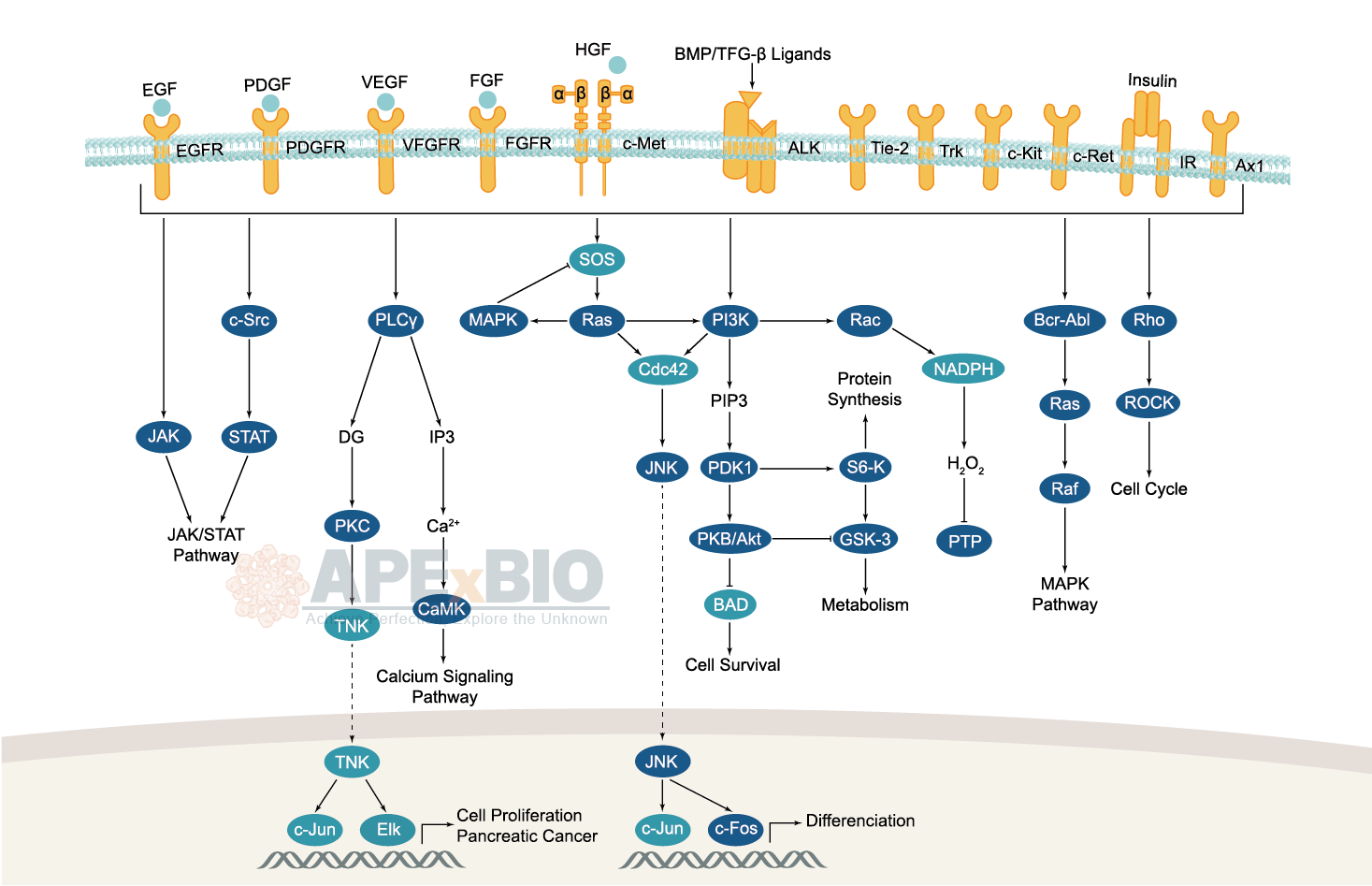

Receptor tyrosine kinases bind to extracellular ligands/growth factors, which promotes receptor dimerization and autophosphorylation of receptor tyrosine residues. This triggers a cascade of downstream events through phosphorylation of intracellular proteins that ultimately transduce the extracellular signal to the nucleus, causing changes in gene expression. Receptor tyrosine kinases include EGFR/ErbB, PDGFR, VEGFR, FGFR and MET subfamilies etc. Dysfunctions in tyrosine phosphorylation are linked to oncogenic transformation. In additions, various adaptor and effector proteins couple to carboxy-terminal of an active kinase. For instance, binding of the GRB2 adaptor protein activates EGFR and MAPK/ERK signaling.
Non-receptor tyrosine kinases involve many well-defined proteins (e.g. the Src family kinases, c-Abl, and Jak kinases) and other kinases which regulates cell growth and differentiation. For example, Src family kinases are curial for activating and inhibitory pathways in the innate immune response.
-
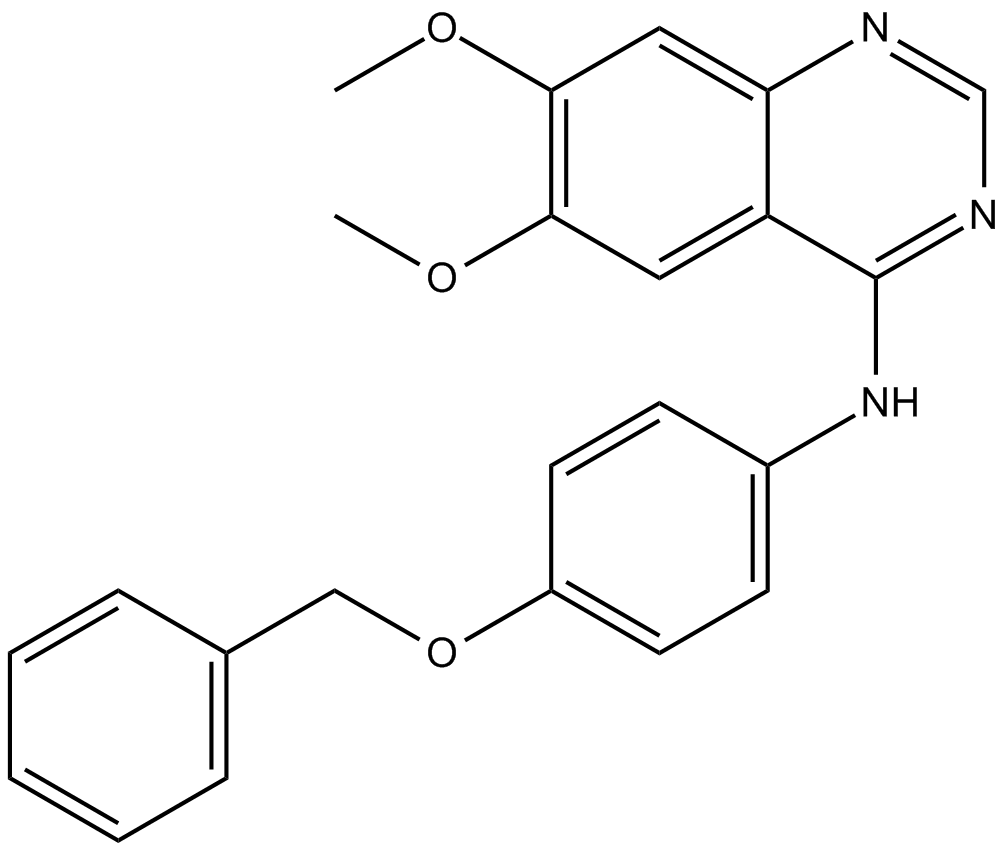 C3285 EGFR/ErbB2 InhibitorSummary: EGFR and c-ErbB2 inhibitor
C3285 EGFR/ErbB2 InhibitorSummary: EGFR and c-ErbB2 inhibitor -
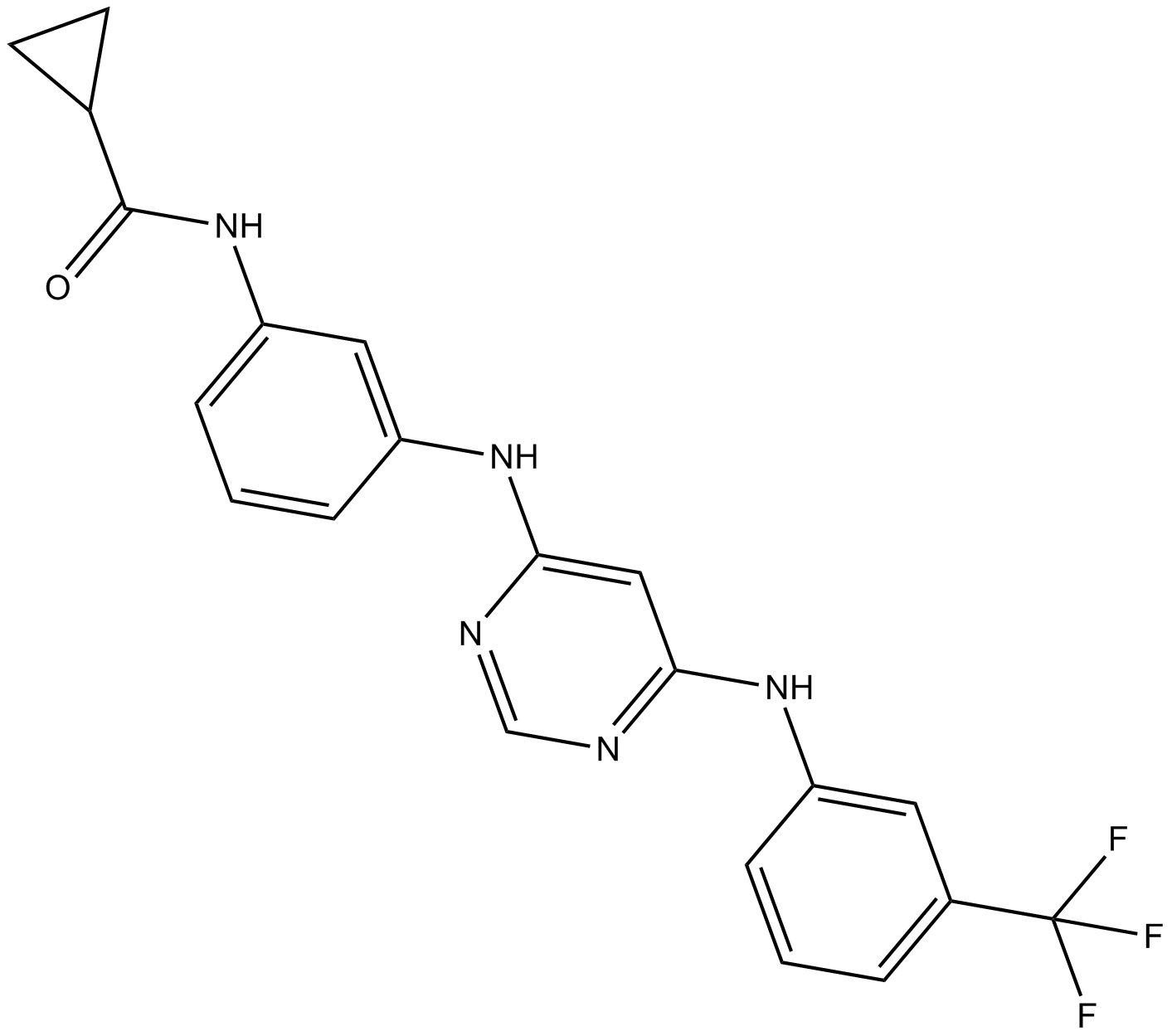 C3327 EGFR InhibitorSummary: EGFR inhibitor
C3327 EGFR InhibitorSummary: EGFR inhibitor -
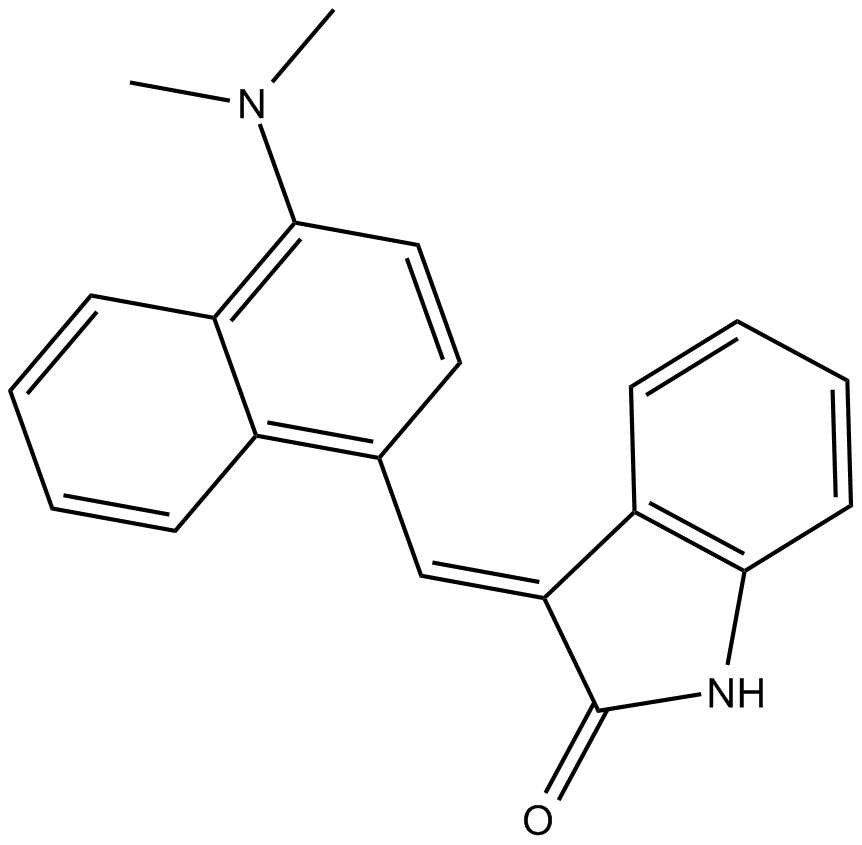 C3342 MAZ51Target: VEGFRSummary: VEGFR3 antagonist
C3342 MAZ51Target: VEGFRSummary: VEGFR3 antagonist -
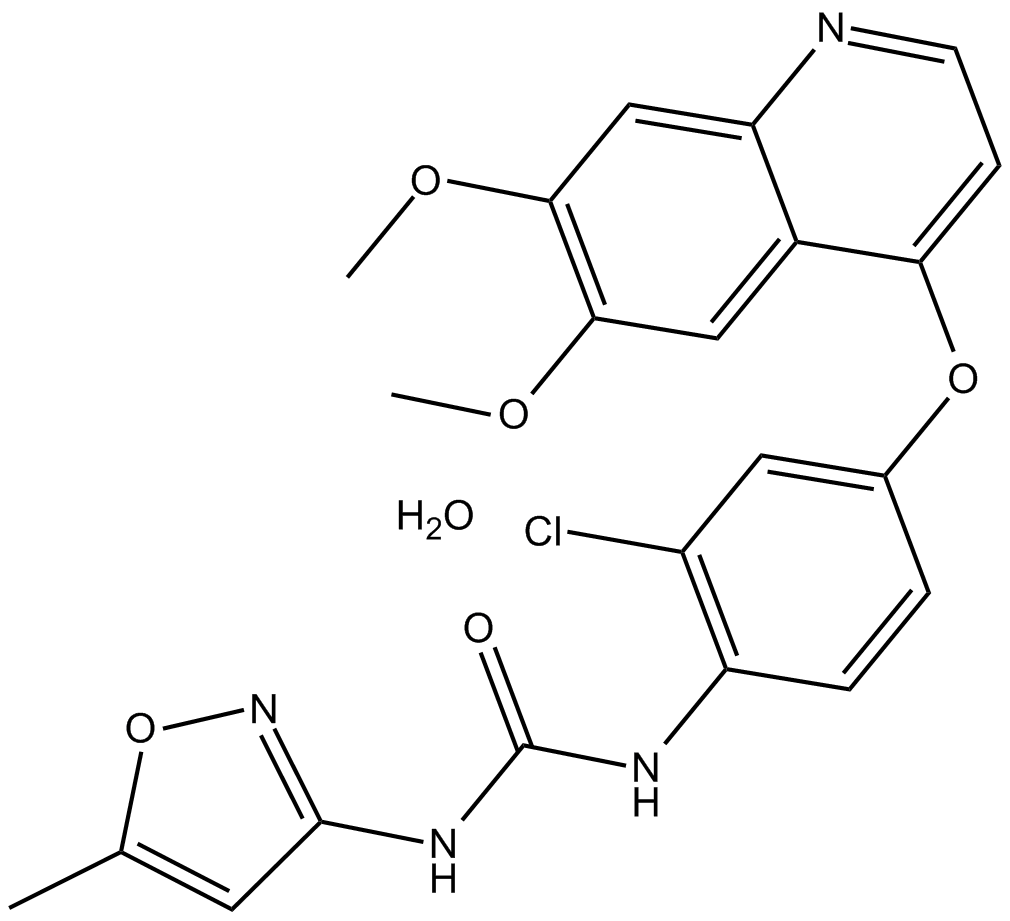 C3415 Tivozanib (hydrate)Summary: VEGFR inhibitor, orally available
C3415 Tivozanib (hydrate)Summary: VEGFR inhibitor, orally available -
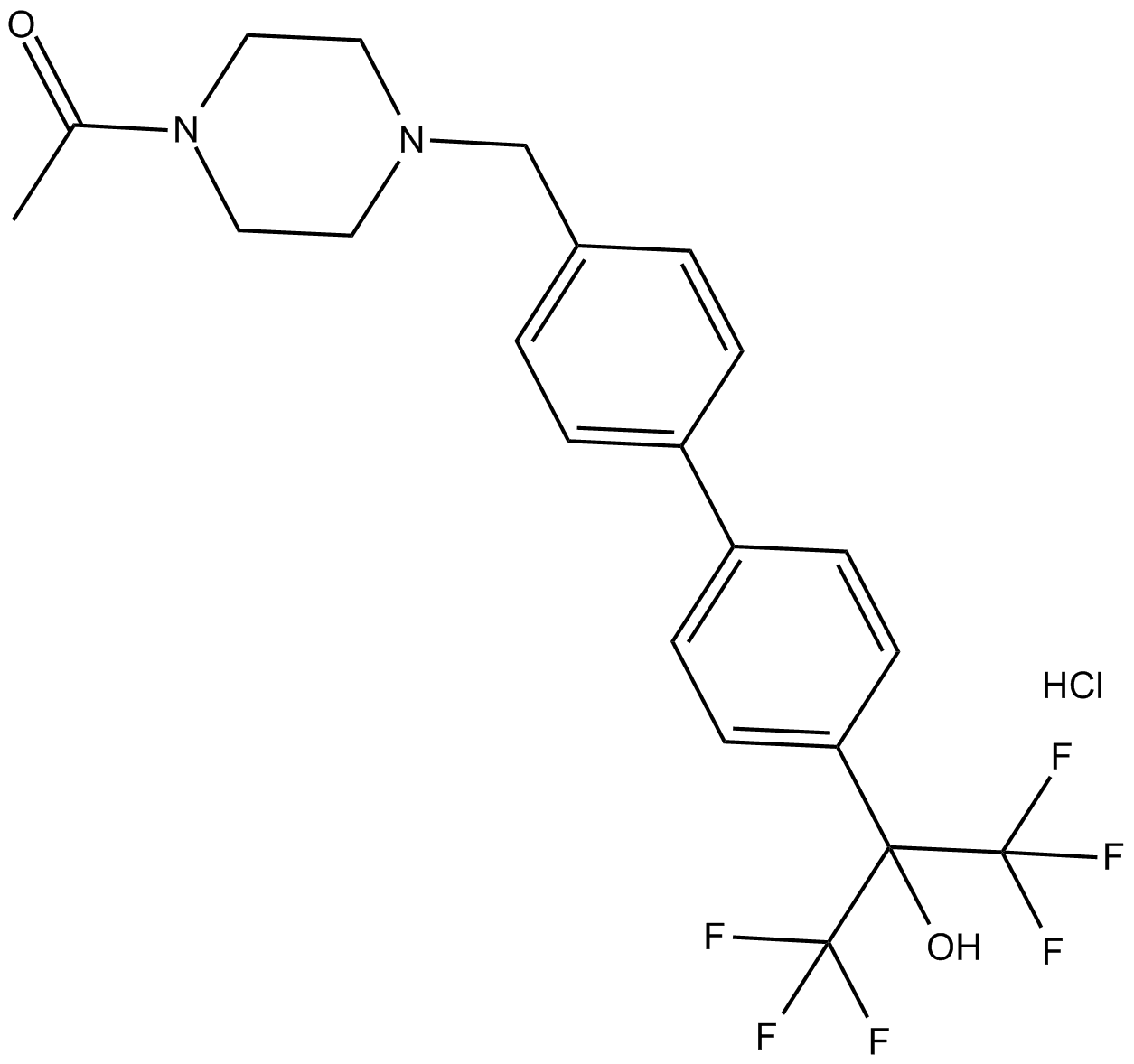 C3485 SR 1555 (hydrochloride)Summary: inverse agonist of RORγ
C3485 SR 1555 (hydrochloride)Summary: inverse agonist of RORγ -
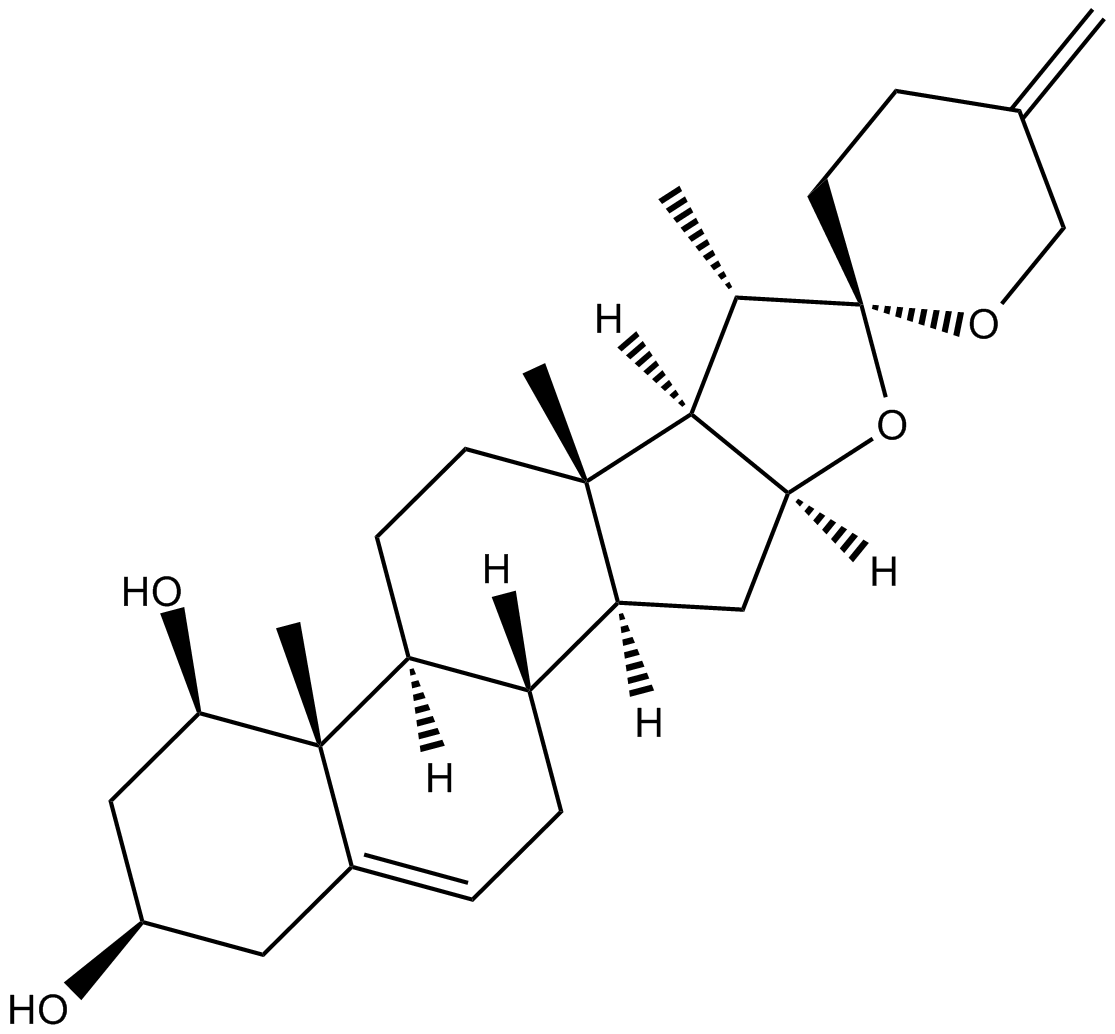 C3841 NeoruscogeninSummary: nuclear receptor RORα agonist
C3841 NeoruscogeninSummary: nuclear receptor RORα agonist -
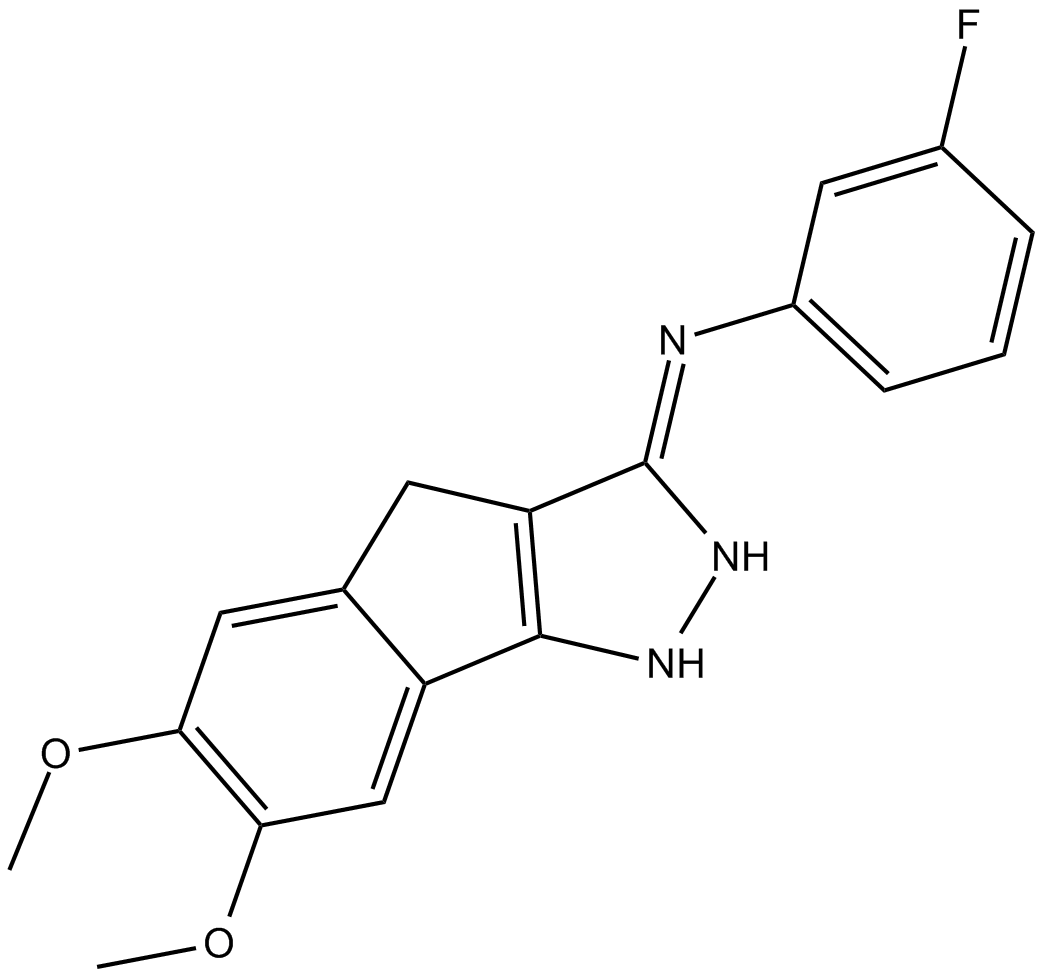 C5737 JNJ-10198409Summary: inhibitor of platelet-derived growth factor (PDGF-BB) tyrosine kinase
C5737 JNJ-10198409Summary: inhibitor of platelet-derived growth factor (PDGF-BB) tyrosine kinase -
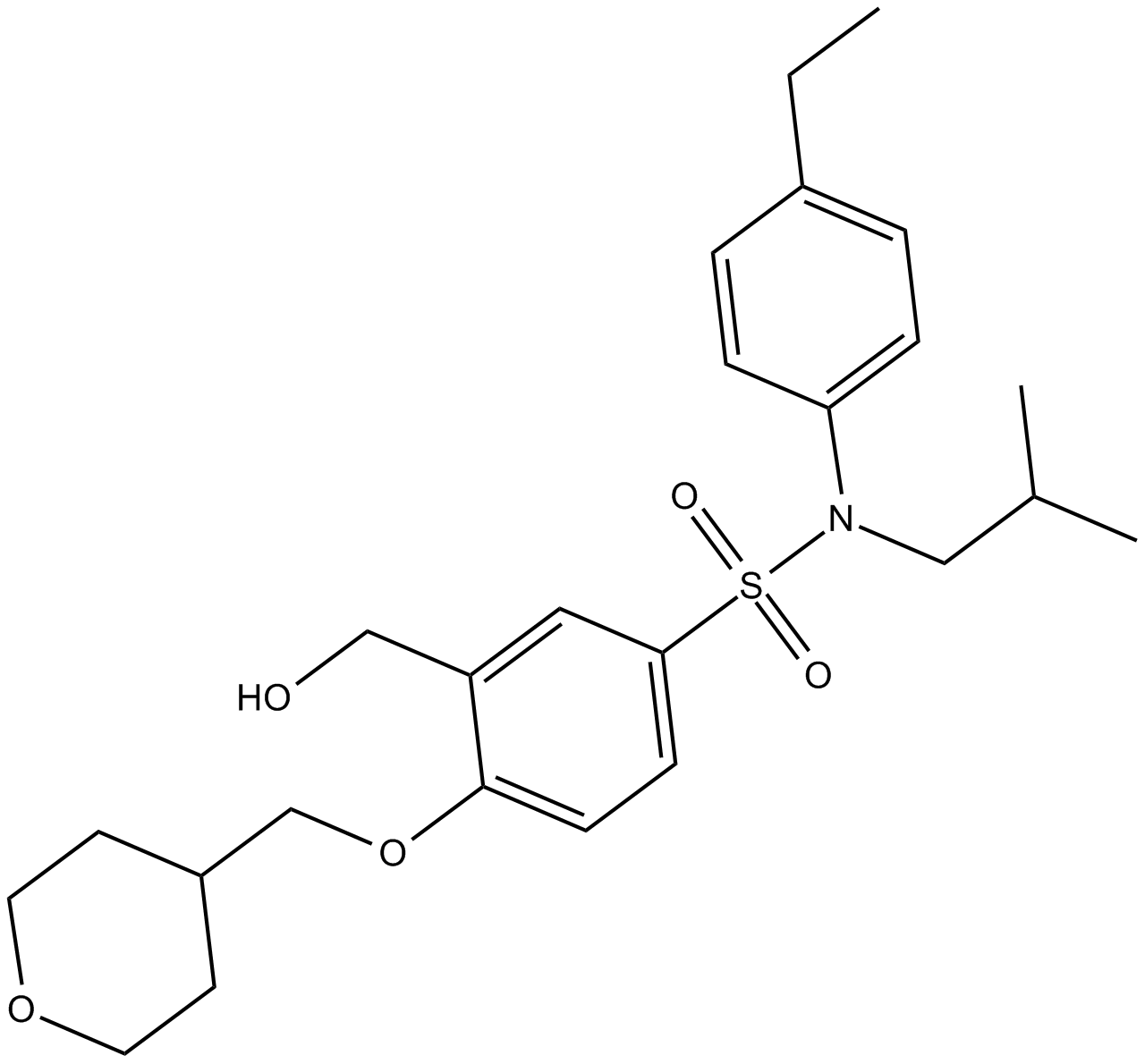 C3707 GSK2981278Summary: RORγ-selective inverse agonist
C3707 GSK2981278Summary: RORγ-selective inverse agonist -
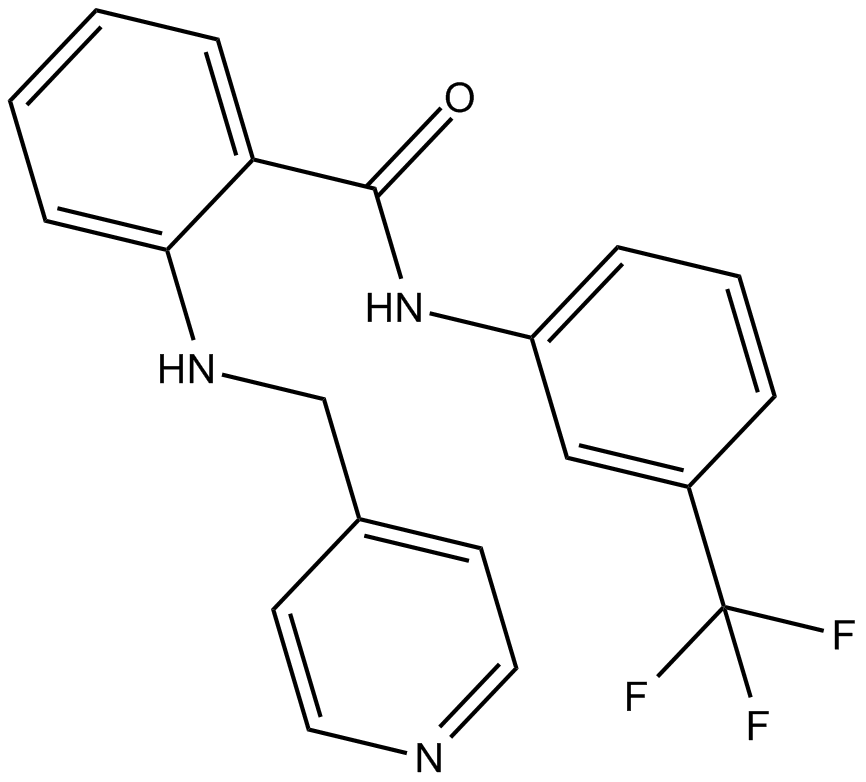 C3730 AAL-993Summary: VEGF receptors inhibitor
C3730 AAL-993Summary: VEGF receptors inhibitor -
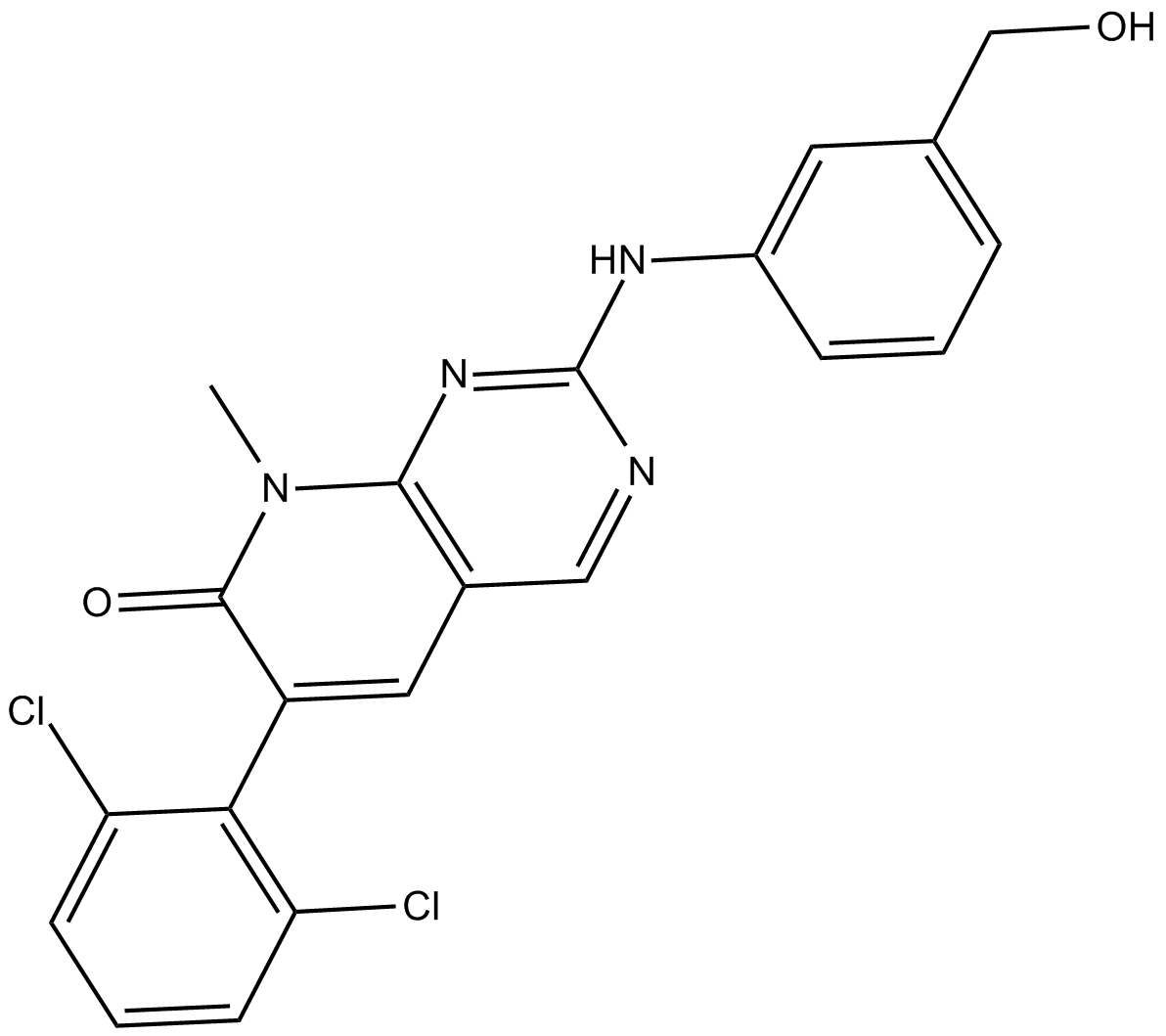 C3677 PD 166326Summary: receptor tyrosine kinases inhibitor
C3677 PD 166326Summary: receptor tyrosine kinases inhibitor


